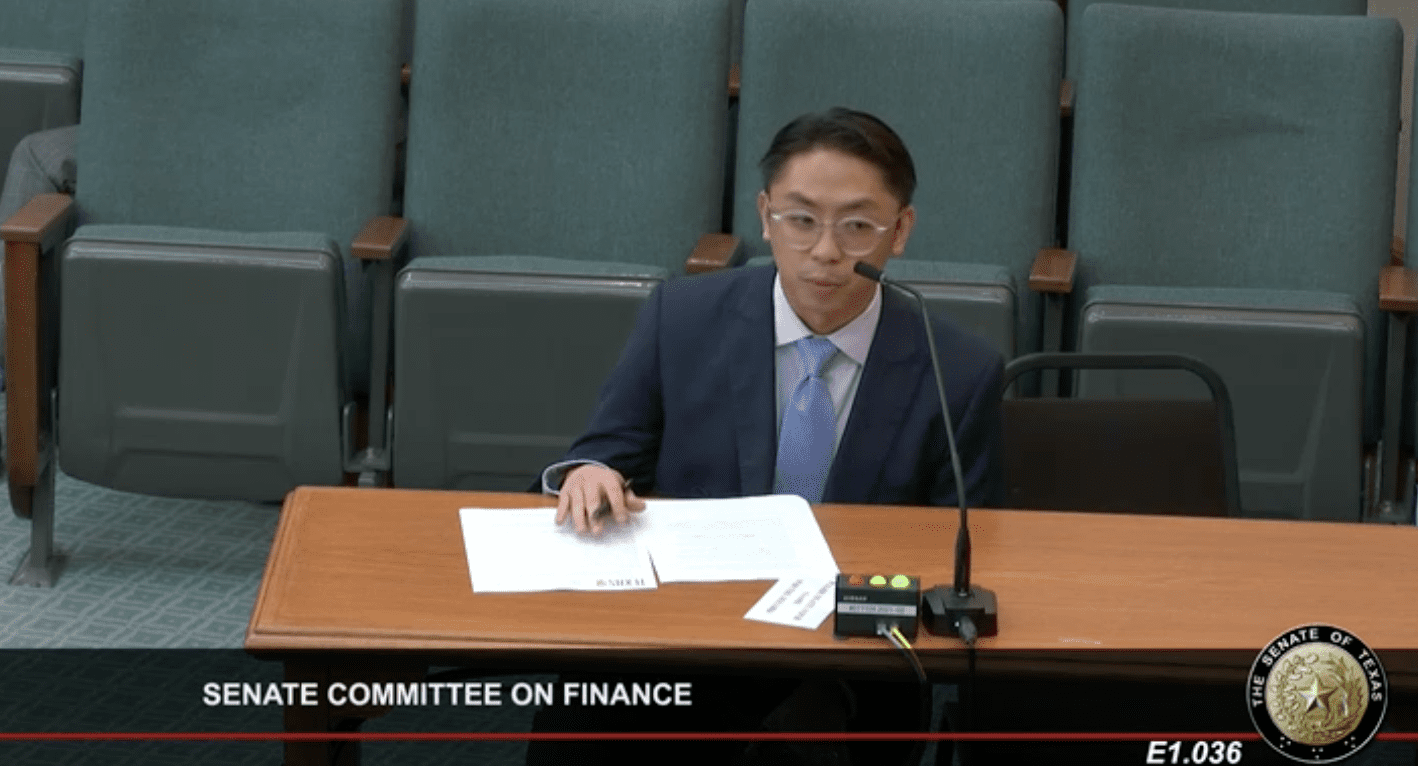Budget boost for community colleges helps workforce
Texas 2036 Policy Advisor Renzo Soto thanked Senators for their inclusion of $650 million in that chamber’s base budget to support community college finance reform and workforce development in testimony to the Senate Committee on Finance on Wednesday.
“Our community colleges can be a key part of our solution for Texas’ growing need for a skilled workforce,” Soto said. “In particular, we need to do a better job of supporting our homegrown talent pipeline. Last decade, the share of high-wage jobs shared by Texans with only a high school diploma fell by 78% while associate’s degree holders increased by 43% and those with some college — which includes those who have certificates — that increased by nearly 113%.”
But, he noted, Texas students’ higher education outcomes are not keeping pace.
- Only 22% of Texas eighth graders in 2012 ultimately earned a higher ed credential six years later while community college students’ graduation and transfer outcomes have plateaued in recent years.

“The Commission on Community College Finance’s recommended reforms address these issues led by funding formula changes focused on students equitably completing credentials of value,” Soto said. “We’re excited about this prospect and we support SB 1’s proposed investment to implement this reform and ask that this funding be maintained.”
Soto repeated support for investing more resources for the Higher Education Coordinating Board to maximize these reforms, specifically for a pair of exceptional items related to data modernization and to innovation and collaboration. He spoke in greater detail about these items during his Senate Finance testimony Tuesday on the coordinating board.
Soto concluded by letting Senators know about the soon-to-be released Community College Finance Simulator, a tool developed by Texas 2036 that draws on historical data from state databases. It allows anyone to model the impacts of the recommendations from the Commission on Community College Finance.
“While we don’t make projections” with the simulator, Soto explained, “the tool does allow you to explore the fiscal implications of different policy decisions with the new formulas that have been proposed, such as incentivizing different credentials currently left out of the system — workforce credentials, in particular — and modeling alignment with workforce needs.”
His testimony begins at the 5:22:50 mark.
